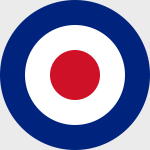Hobby Master HA8613 RAF Hawker Hurricane Mk. Ia Fighter - S/Ldr Pattle, No.33 Squadron, Greece, 1941 (1:48 Scale)
"Sergeant Lacey has shown consistent efficiency and great courage. He has led his section on many occasions and his splendid qualities as a fighter pilot have enabled him to destroy at least 19 enemy aircraft."
- Excerpted from a citation in the London Gazette, after racking up 23 claims (18 made during the Battle of Britain) and receiveing a Bar to his Distinguished Flying Medal for his continued outstanding courage and bravery during the Battle of Britain, November 26th, 1940
 The Hawker Hurricane was the first monoplane to join the Royal Air Force as a fighter aircraft, capable of reaching speeds in excess of 300-mph in level flight. Often compared with the sleek-looking Supermarine Spitfire, the Hurricane, in actuality, shouldered the brunt of the fighting during the "Battle of Britain", equipping more than three-fifths of the RAF's Fighter Command squadrons. When it lost its edge as a dogfighter in 1941, the Hurricane took on a number of other roles, including ground attack missions and maritime combat air patrols.
The Hawker Hurricane was the first monoplane to join the Royal Air Force as a fighter aircraft, capable of reaching speeds in excess of 300-mph in level flight. Often compared with the sleek-looking Supermarine Spitfire, the Hurricane, in actuality, shouldered the brunt of the fighting during the "Battle of Britain", equipping more than three-fifths of the RAF's Fighter Command squadrons. When it lost its edge as a dogfighter in 1941, the Hurricane took on a number of other roles, including ground attack missions and maritime combat air patrols.
The Hurricane Mk.I was the first production version, with fabric-covered wings, a wooden two-bladed, fixed-pitch propeller (first 435) or three blade two -pitch propeller, powered by the 1,030 hp (770 kW) Rolls-Royce Merlin Mk.II (first 364) or III engines and armed with eight .303 in (7.7 mm) Browning machine guns. Produced between 1937 and 1939.
The Hurricane Mk.I was the first production version, with fabric-covered wings, a wooden two-bladed, fixed-pitch propeller (first 435) or three blade two -pitch propeller, powered by the 1,030 hp (770 kW) Rolls-Royce Merlin Mk.II (first 364) or III engines and armed with eight .303 in (7.7 mm) Browning machine guns. Produced between 1937 and 1939.
Pictured here is a 1:48 scale replica of a RAF Hawker Hurricane Mk. Ia fighter that was piloted by S/Ldr Pattle, who was attached to No.33 Squadron, then deployed to Greece during 1941.
Sold Out!
Dimensions:
Wingspan: 10-inches
Length: 8-inches
Release Date: March 2024
Historical Account: "Greece" - With the exception of a time in Greece and Crete in 1941, 33 Squadron remained in the Middle East for most of World War II. Equipped initially with the Gloster Gladiators they had used in Palestine, the Squadron claimed its first victories of the Second World War on June 14th, 1940, while supporting the British capture of Fort Capuzzo, when the squadron shot down an Italian Caproni Ca 310 and a Fiat CR.32. It suffered its first losses of the war five days later in a combat with Fiat CR.42 Falcos, with one Gladiator being shot down in exchange for two Fiats. The squadron re-equipped with Hurricanes in October 1940, allowing it to intercept the Italian SM.79 bombers, which were faster than the Gladiator.
It was withdrawn from the desert fighting in January 1941, in order to help resist the Italian invasion of Greece. From March 12th, Pat Pattle, the leading Commonwealth flying ace, was in command until he was killed in action on April 20th. The squadron was involved in heavy fighting following the German intervention, and had to be withdrawn to Crete on April 27th. Due to continuing heavy losses, the squadron had to amalgamate with No.80 Squadron RAF and the ground personnel fought hand-to-hand with German paratroopers to protect the airfield. The remnants of 33 Squadron retired to Egypt by the end of May after the Battle of Crete. The Squadron returned to support the Army in the Western Desert, including at the Battle of El Alamein, trading its Hurricanes for Supermarine Spitfires in December 1943.
Returning to the UK in 1944 for Operation Overlord (the Allied invasion of Normandy), the squadron flew the Spitfire IX F from RAF Lympne in Air Defense of Great Britain, though under the operational control of RAF Second Tactical Air Force (2nd TAF). It flew fighter support on D-Day (June 6th, 1944), then moved to France with 2nd TAF in October 1944, when it concentrated on ground-attack operations. It re-equipped with the Hawker Tempest in December, returning to action from Gilze-Rijen in February 1945, flying fighter sweeps in North West Europe. The squadron remained in Germany until 1949.









